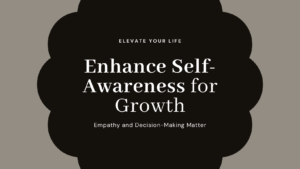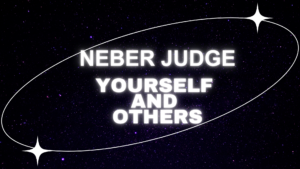“The weak can never forgive. Forgiveness is the attribute of the strong.”
― Mahatma Gandhi
In a world filled with diverse individuals and complex relationships, conflicts and misunderstandings are inevitable. But what if there was a powerful remedy that could mend broken bonds, soothe wounded hearts, and nurture healthy connections? That remedy is forgiveness. Often underestimated, forgiveness is the oil that lubricates the gears of our relationships, allowing them to operate smoothly and flourish. In this article, we will explore the profound benefits of forgiveness and why embracing it in our daily lives can transform our relationships and bring us inner peace.
Liberation from Resentment:
When we hold onto grudges and resentment, it weighs us down and prevents us from experiencing true joy and harmony in our relationships. Forgiveness offers liberation from these negative emotions. By letting go of past hurts, we free ourselves from the burden of resentment and create space for healing and growth. Forgiveness grants us the power to break free from the chains of bitterness and reclaim our emotional well-being.
Strengthening Bonds:
Forgiveness has the extraordinary ability to strengthen the bonds we share with others. It fosters empathy, understanding, and compassion, creating an environment where relationships can thrive. By forgiving, we show our willingness to move forward and rebuild trust, which leads to deeper connections and enhanced intimacy. It opens the door for open communication, cooperation, and a shared sense of vulnerability that strengthens the foundation of any relationship.
Promoting Emotional Healing:
Forgiveness is a healing balm for emotional wounds. It allows us to acknowledge our pain, process it, and ultimately release it. Through forgiveness, we can begin the journey of healing and restore our emotional well-being. It provides an opportunity for both parties involved in a conflict to heal together, fostering empathy and paving the way for mutual growth.
Encouraging Personal Growth:
Forgiveness is not only transformative for relationships but also for our personal growth. It teaches us valuable lessons in humility, resilience, and self-reflection. By choosing forgiveness, we demonstrate emotional maturity and the ability to rise above the hurtful actions of others. It enables us to break patterns of negativity and cultivate a positive mindset that promotes personal growth and fosters a sense of inner peace.
Creating Harmonious Communities:
The power of forgiveness extends beyond individual relationships; it has the potential to create harmonious communities. When forgiveness becomes a collective practice, it promotes unity, understanding, and reconciliation. It allows communities to heal from past conflicts, bridge divides, and work together towards common goals. Forgiveness becomes a catalyst for positive change, fostering a culture of empathy, compassion, and collaboration.
Forgiveness is not a sign of weakness; it is a testament to our strength and resilience. By embracing forgiveness in our daily lives, we unlock the transformative power it holds. It liberates us from resentment, strengthens our bonds, promotes emotional healing, encourages personal growth, and builds harmonious communities. Let us choose forgiveness as the oil that nourishes our relationships, allowing love, understanding, and compassion to flow freely. By doing so, we embark on a journey of healing, growth, and profound connection, creating a world where forgiveness becomes the cornerstone of our interactions.
–
Embracing forgiveness in your daily life is a transformative journey that requires commitment and self-reflection. Here are some practical steps you can take to cultivate forgiveness:
- Cultivate Self-Compassion: Start by extending forgiveness to yourself. Recognize that we all make mistakes and that self-forgiveness is essential for personal growth. Treat yourself with kindness and understanding, allowing room for growth and learning from your own missteps.
- Practice Empathy: Seek to understand others’ perspectives and experiences. Put yourself in their shoes and try to see the situation from their point of view. This empathetic mindset can help you develop compassion and foster forgiveness.
- Let Go of Grudges: Holding onto grudges and resentment only weighs you down. Make a conscious decision to release negative emotions and choose forgiveness instead. Understand that forgiving doesn’t mean condoning the actions or forgetting what happened, but rather freeing yourself from the emotional burden.
- Engage in Dialogue: When conflicts arise, engage in open and honest communication. Express your feelings and concerns, while also being receptive to the other person’s point of view. Constructive dialogue can pave the way for understanding, resolution, and forgiveness.
- Practice Mindfulness: Cultivate mindfulness to become more aware of your thoughts, emotions, and reactions. Mindfulness allows you to observe negative emotions without judgment and respond to them in a more compassionate and forgiving manner.
- Seek Support: Forgiveness can be challenging, and seeking support from trusted friends, family, or a therapist can provide guidance and a safe space for processing your emotions. They can offer insights and help you navigate the forgiveness journey.
- Release Expectations: Let go of unrealistic expectations you may have of others or yourself. Accept that everyone is imperfect, including yourself. By embracing imperfections and releasing expectations, you create a space for forgiveness to flourish.
- Focus on the Present: Avoid dwelling on past grievances and instead focus on the present moment. By shifting your attention to the present, you can break the cycle of rumination and create space for forgiveness and healing.
- Practice Gratitude: Cultivate a mindset of gratitude for the positive aspects of your relationships and life. Gratitude helps shift your perspective and reminds you of the good, making forgiveness more accessible.
- Be Patient and Persistent: Forgiveness is a process that takes time and effort. Be patient with yourself and others as you navigate this journey. It may require multiple attempts and continued practice, but the rewards of a forgiving heart are worth it.
Remember, embracing forgiveness is a personal choice and a continuous practice. By letting go of grudges, cultivating empathy, and engaging in open communication, you can foster a forgiving mindset that enriches your relationships, promotes emotional well-being, and creates a more peaceful and compassionate world.
So, let us embrace forgiveness, mend broken bonds, and cultivate relationships that radiate with love, acceptance, and understanding. Together, we can create a world where forgiveness becomes the guiding light that paves the way for lasting peace and fulfillment in our relationships and within ourselves.




